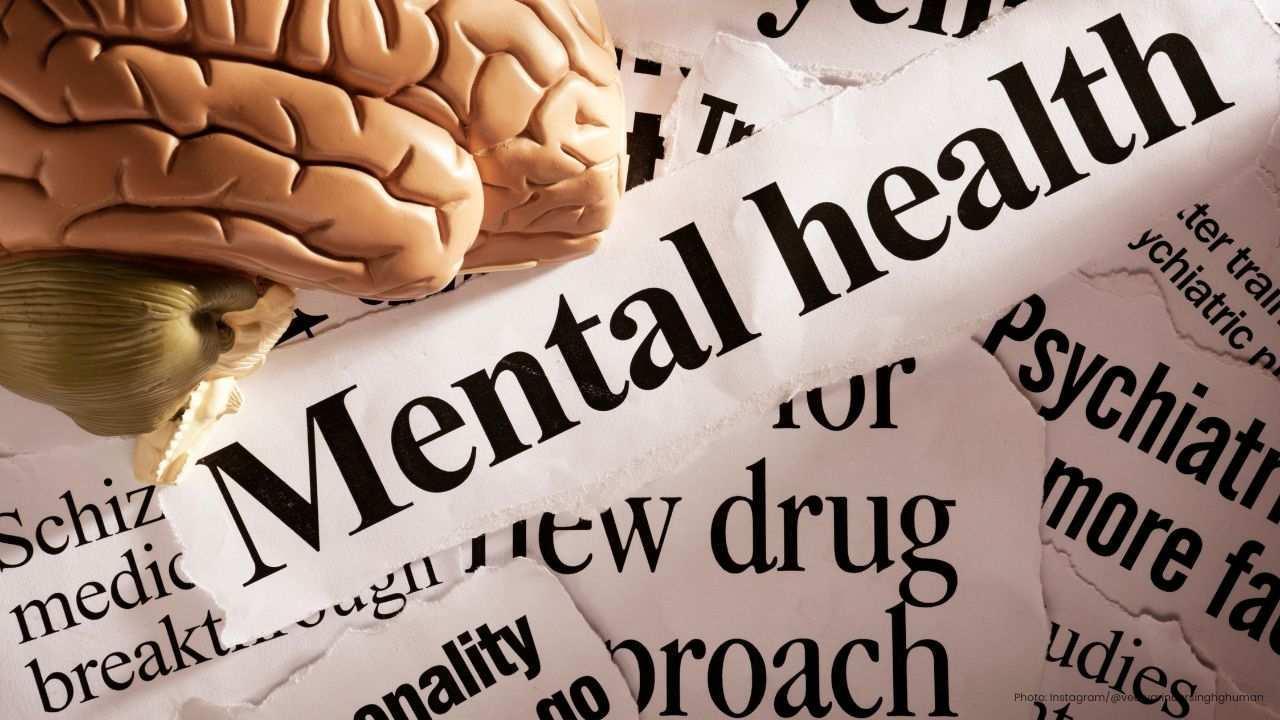
Post by : Samir Nasser
In India, conversations about mental well-being are increasing, and one quiet but powerful stressor is emerging: monthly EMIs. For many households, missing a payment or keeping up with multiple loans can disrupt sleep, reduce focus, and affect overall peace of mind. According to the Economic Survey, these financial pressures even affect national productivity, showing that the impact of debt goes beyond personal finance.
Recent data highlights the scale of mental health challenges in India. Millions are affected by anxiety, depression, and other disorders, with treatment gaps ranging from 70% to 92%. Urban areas show particularly high prevalence. Financial stress from unpaid loans and EMIs can worsen these conditions, creating chronic anxiety that affects both personal and professional life.
For many individuals, debt is not just about money—it’s a constant mental load. Take the example of Ratnesh, a 34-year-old warehouse supervisor. Even after the noise of his day fades, his mind stays occupied by due dates and unpaid loans. From credit card minimums to BNPL installments and personal loans taken during emergencies, each small debt feels overwhelming at night, disrupting sleep and creating anxiety.
Debt has a direct impact on sleep, focus, and productivity:
Poor Sleep Quality: Worrying about unpaid loans can make it hard to fall asleep or stay asleep, leaving people exhausted the next day.
Stress and Anxiety: Constantly thinking about EMIs or credit card dues can trigger chronic stress.
Reduced Productivity: Mental distraction caused by debt can lead to absenteeism, mistakes at work, and lower efficiency.
Strained Relationships: Financial pressure often causes arguments at home, creating emotional tension and affecting family life.
Studies show that India has a large population of adults going to bed late and waking up unrefreshed. For many, the stress of unpaid EMIs is a key contributor. Economists warn that stacked loans compress household savings and force families to juggle multiple debts, which not only affects personal mental health but also impacts workplace productivity.
Debt often starts small but grows silently. Easy access to credit gives an illusion of affordability, which can turn into a vicious debt cycle, especially when incomes remain flat and living expenses rise. Common triggers include:
Aspirational Purchases: Buying gadgets or luxury items on credit can increase EMIs unnecessarily.
Medical Emergencies: Loans taken during unexpected health issues may extend longer than anticipated.
Multiple Credit Lines: Combining credit cards, BNPL, and personal loans increases mental load.
Harish Parmar, Founder of SingleDebt, explains: “Debt has quietly become one of the biggest stressors for India’s middle class. What starts as small EMIs often snowballs into multiple loans, sleepless nights, and family strain. It’s both an economic and mental health challenge.”
Managing debt-related stress is possible with planning and simple lifestyle changes. Here are practical steps:
1. Protect Your Sleep
Establish a wind-down routine before bed.
Dim screens at least an hour before sleeping.
Silence EMI and loan notifications after a set time to prevent late-night anxiety.
2. Organize Your Loans
Write down all EMIs, loan amounts, interest rates, and due dates on a single page.
This reduces mental rumination and provides clarity and control over finances.
3. Borrow Responsibly
Only take loans for urgent needs, not for avoidable expenses like travel or luxury items.
Avoid depending solely on the minimum credit card due, which can accumulate high interest.
Consider borrowing against securities or low-interest options for emergency needs to protect long-term goals.
4. Prioritize Repayment
Pay off high-interest debts first to reduce the overall burden.
Aim to repay loans as soon as possible; long-term debts can slow financial progress.
5. Seek Help if Needed
Financial advisors or credit counselors can help restructure debt and provide guidance.
Don’t hesitate to reach out for mental health support if anxiety or stress becomes overwhelming.
India’s Economic Survey has, for the first time, linked mental health with economic productivity. The well-being of citizens affects the growth path of the country and the efficiency of its workforce. Simply put, managing personal debt is not just about finances—it also contributes to national productivity and economic stability.
Borrow money only when necessary and avoid impulsive loans.
Repay loans and EMIs quickly to prevent interest from accumulating.
Avoid paying just the minimum credit card amount, as it attracts high interest.
Use emergency funds or securities to avoid jeopardizing long-term financial goals.
This article is for educational purposes only and does not promote taking loans or credit. Mint partners with financial services, but editorial content remains independent. Credit comes with risks such as high interest rates and hidden charges. Always consult certified experts before taking any loans or credit products.










Kazakhstan Boosts Oil Supply as US Winter Storm Disrupts Production
Oil prices inch down as Kazakhstan's oilfield ramps up production, countered by severe disruptions f

Return of Officer's Remains in Gaza May Open Rafah Crossing
Israel confirms Ran Gvili's remains identification, paving the way for the Rafah border crossing's p

Border 2 Achieves ₹250 Crore Globally in Just 4 Days: Sunny Deol Shines
Sunny Deol's Border 2 crosses ₹250 crore in 4 days, marking a significant breakthrough in global box

Delay in Jana Nayagan Release as Madras HC Bars Censorship Clearance
The Madras High Court halts the approval of Jana Nayagan's censor certificate, postponing its releas

Tragedy Strikes as MV Trisha Kerstin 3 Accident Leaves 316 Rescued
The MV Trisha Kerstin 3 met an unfortunate fate near Jolo, with 316 passengers rescued. The governme

Aryna Sabalenka Advances to Semi-Finals, Targeting Another Grand Slam Title
Top seed Aryna Sabalenka triumphed over Jovic and now faces Gauff or Svitolina in the semi-finals as